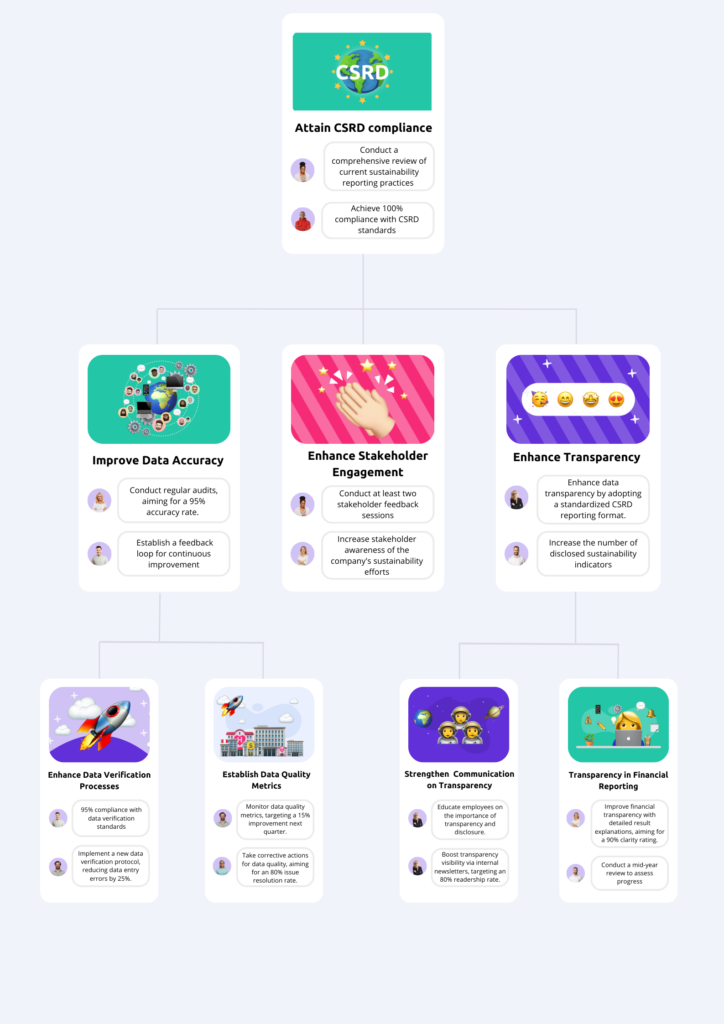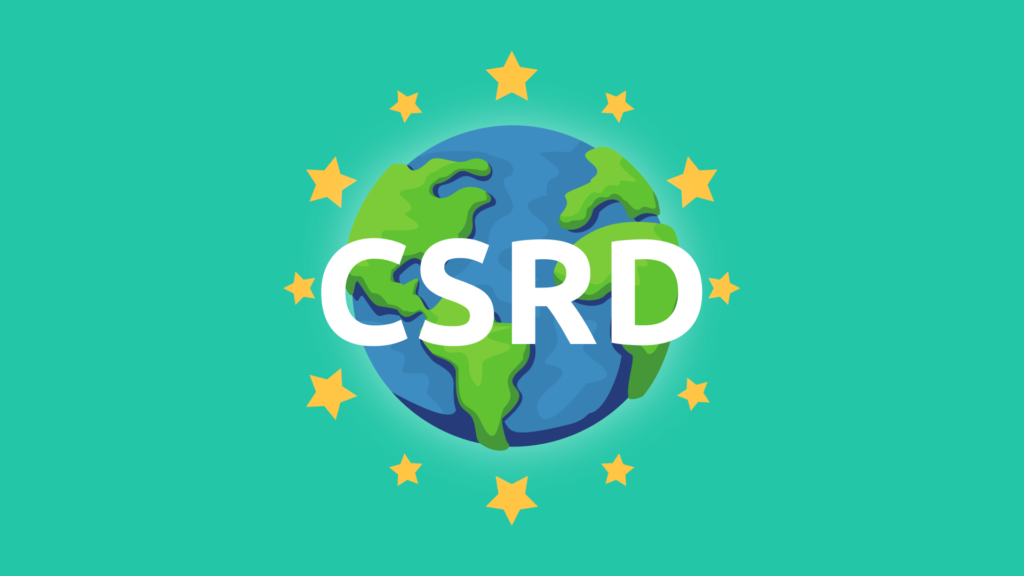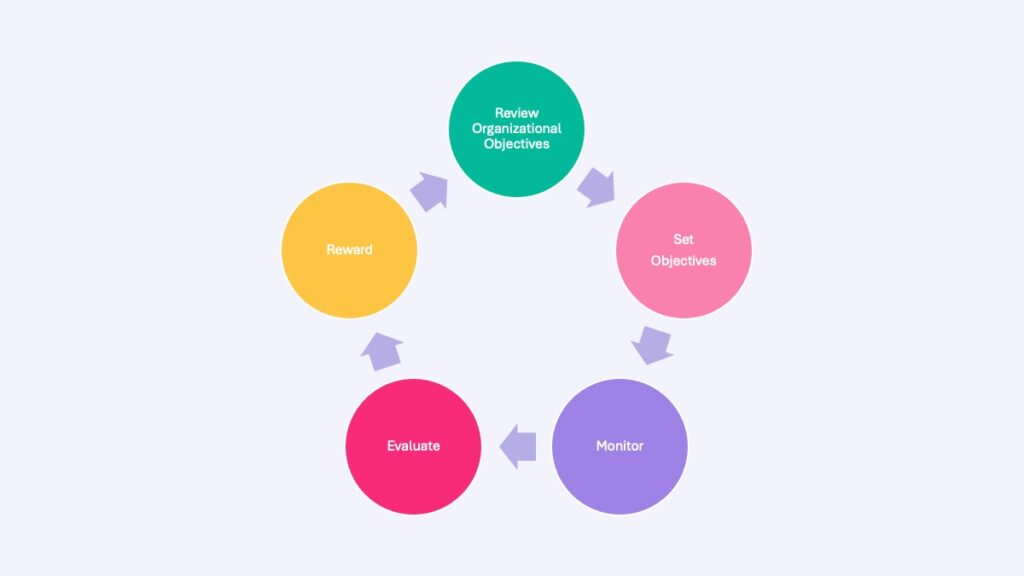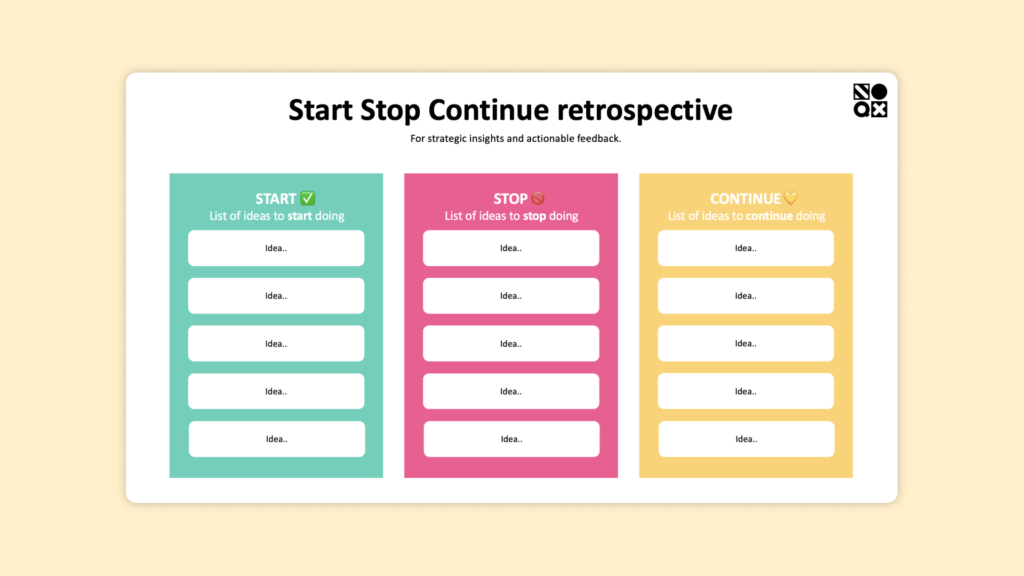In today’s business world, two terms frequently surface: CSRD, or Corporate Social Responsibility Directive. It’s not just jargon; is a groundbreaking piece of legislation adopted in the European Union (EU) that sets a new standard for global sustainability reporting. Let’s dive into what CSRD is, why it matters, and who it affects.
What is CSRD (Corporate Social Responsibility Directive)?
The Corporate Sustainability Reporting Directive (CSRD) is a new EU law that makes large companies and listed SMEs share regular reports about their impact on the environment and society. This helps investors, consumers, and policymakers see how well these companies are doing in areas beyond just finances. It aims to make companies more responsible in their business practices, changing how they report on sustainability. The CSRD, which started on January 5, 2023, sets a common framework for reporting non-financial data, affecting around 50,000 companies in Europe to make reporting more standardized.
CSRD expands on the existing Non-Financial Reporting Directive, which made big companies report on sustainability since 2018. This new law responds to the growing importance of reporting on Environmental, Social, and Governance (ESG) matters. Currently, the information reported by companies is often incomplete or hard to compare, making it challenging for investors. To fix this, the EU introduced CSRD to create a common framework for reliable and comparable sustainability reporting. This way, investments can be directed towards more sustainable technologies and companies.
On November 28, 2022, the EU Council gave the final approval for CSRD. Compliance is coming up soon; companies need to submit their CSRD-aligned reports starting January 1, 2025, for the 2024 financial year. This might be challenging because collecting and auditing data takes time and resources. If your company is unsure about complying with this new regulation, it’s a good time to learn more, and we can help you with that.
Who is affected by CSRD?
By the year 2028, the following entities or endeavors will be required to adhere to the CSRD:
Large listed undertakings:
Encompassing companies listed on an EU-regulated market exchange, excluding ‘micro undertakings’ that do not fulfill two of the three specified criteria on consecutive balance sheet dates:
- Total assets of at least EUR 350,000 (437,500). Net turnover (revenue) of at least EUR 700,000 (857,000).
- A workforce of at least 10 employees (average) throughout the year.
EU-based large undertakings, irrespective of listing status:
Encompassing both listed and non-listed companies that satisfy two of the following three criteria on any two consecutive balance sheet dates:
- Total assets of at least EUR 20 million (25* million).
- Net turnover of at least EUR 40 million (50* million).
- A workforce of at least 250 employees (average) during the year.
‘Third-country’ undertakings:
Covering non-EU parent companies of EU subsidiaries, with annual EU revenues of at least EUR 150 million in the most recent two years, and possessing one of the following:
- A sizable EU-based undertaking.
- An EU-based subsidiary with securities listed on an EU-regulated market exchange.
- An EU branch office with a minimum net turnover of EUR 40 million.
When does the CSRD officially come into effect?
On November 28, 2022, the European Union Council gave its final approval to the Corporate Sustainability Reporting Directive (CSRD). Once the Council approved the European Parliament’s position, the CSRD became an official law. After being signed by the Presidents of the European Parliament and the Council, it was published in the Official Journal of the European Union and became effective on January 5, 2023. Member states are required to implement the new rules 18 months later. Here’s what to expect in the coming years:
- End of 2023: EU Member States must turn the EU Directive into their own national laws.
- January 1, 2024: Companies covered by CSRD, currently reporting under the NFRD, must report their financial year 2024 data in 2025. Additionally, from the start of 2024, all other large EU companies under CSRD must start reporting.
- January 1, 2025: Businesses already following NFRD rules will need to start reporting for the financial year 2024.
- January 1, 2026: SMEs listed on a regulated market (excluding micro-enterprises) are required to report for the financial year 2025, but with less strict reporting requirements.
- January 1, 2028: Small and medium enterprises, small and non-complex credit institutions, and captive insurance undertakings must begin reporting for the financial year 2027. There’s also an option for voluntary opt-out until 2028, and the reporting standards for SMEs will be more lenient.
- January 1, 2029: Non-European companies with branches or subsidiaries in the EU, having a net turnover of €150M in the EU, will have to start reporting.
Why is it important?
- Avoiding problems: By thinking about these principles, companies can avoid issues related to the environment and society. This also helps them stay strong for a long time.
- Having a good reputation: Doing good things makes people like a company more. This makes the company look good, and customers also like to buy from companies that do good for society.
- Following the rules: Thinking about CSRD helps companies follow the rules. This reduces the chances of having legal problems and keeps the company in line with what people expect.
- Getting more support from investors: Nowadays, investors like companies that care about CSRD. If a company pays attention to these good things, then more investors might be interested in supporting them.
- Making employees happy: When a company cares about CSRD, it often makes employees happier. People like working for companies that make a positive impact on the world.
Seems confusing?
CSRD reporting can be confusing, but using OKRs (Objectives and Key Results) makes things much simpler. OKRs help set clear goals and measurable steps for complying with CSRD.

It’s like having a roadmap that breaks down the complex reporting process into manageable steps. This is exactly what we do here at NOQX. Using our goal-setting plattform, businesses can easily track their progress and make sure they meet all the CSRD requirements. So, instead of feeling overwhelmed, OKRs and clear goal-setting provide a clear and simple way to tackle the challenges of sustainability reporting. Learn more about NOQX here, and be sure to check out our OKR-guide.




